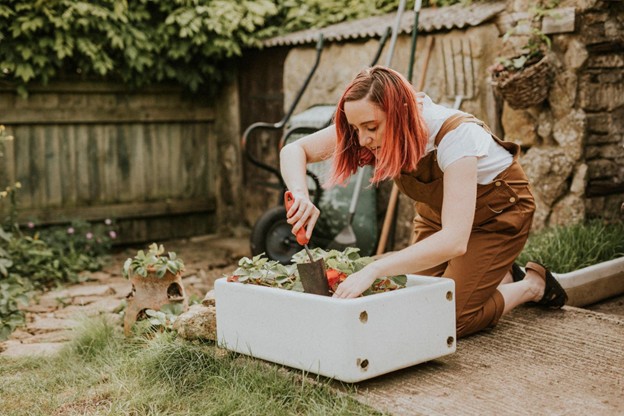
The charm of a hobby farm is undeniable—fresh eggs, muddy boots, and the quiet reward of watching something grow under your hands. But charm doesn’t pay the feed bill. For many homesteaders, the dream doesn’t end with self-sufficiency. It’s evolving into a patchwork of micro-ventures that turn these rural retreats into real revenue. Whether you’ve got two acres or twenty, a few goats or a greenhouse, the possibilities for monetizing your slice of earth are broader—and weirder—than you might think. This isn’t about going full commercial. It’s about blending the soul of your land with practical, creative ways to make it work for you.
Sell the Story, Not Just the Product
People don’t just want tomatoes, they want a tomato with a name, a backstory, and an Instagram presence. Building a narrative around your farm makes every dozen eggs or jar of jam feel like part of something bigger. Document the process: your daily routines, the mishaps, the first frost. A well-tended social media account or Substack newsletter lets folks connect emotionally with what you’re growing. That connection justifies higher prices at market or online and can lead to loyalty you’d never get from a commodity product. Your customers aren’t just buying basil. They’re buying your basil.
Host Tiny Experiences That Don’t Feel Touristy
You don’t need to build a barn loft B&B to get in on agritourism. More and more homesteaders are opening their gates a few times a year for events that are small, focused, and personal. Think about herb-foraging walks, goat yoga on Sunday mornings, sourdough workshops around your kitchen table. These aren’t high-capacity cash cows—but they build community and word-of-mouth while letting you charge a premium for access to the authenticity people crave. Keep it limited, keep it intimate, and let your guests carry the story of your farm back into their city lives.
Sharpen Your Strategy with School
When your hobby farm starts showing signs of real income, it’s worth investing in the skills to sustain that growth. Going back to school for a business degree isn’t just about getting a credential, it’s a way to learn how to price your products, reach new customers, and structure your side hustle like a real enterprise. Whether you earn a degree in marketing, business, communications, or management, you can learn skills that can help your business thrive. Online degree programs make it easy to run your business while going to school at the same time, meaning you can develop essential business skills without ever leaving the farm!
Let the Weeds Pay You Back
Not every corner of a hobby farm is productive in the traditional sense. But there’s a whole market for what you might consider waste. Wildflowers become dried bouquet subscriptions. Unused pasture can host bees for local apiarists. Spent grain from a neighbor’s brewery turns into gourmet compost. The trick is looking at your excess or unused resources as inventory—not trash. Partnering with others in your region, you might find that your leftovers fill someone else’s niche. Even weeds can become wellness teas if you know your audience.
Niche Down Until It Feels Almost Too Specific
Generalist growers struggle to stand out. The money often lies in the weird, the rare, the oddly specific. Lavender syrup kits, gourmet mushroom logs, heritage duck eggs—these things sell because they feel like discoveries. Hobby farmers who focus on niche products often find they can sell less volume at higher margins, with less competition and more dedicated followings. What’s in short supply but long on interest in your region? Lean into your quirks, and you’ll attract customers who see your farm as a destination, not just a stall at the market.
Teach What You Know, Even If You Think It’s Basic
What feels mundane to you might be life-changing to someone else. Teaching has become a quiet moneymaker for many small-scale farmers, especially as more city folks try to reconnect with where their food comes from. Host a Saturday seed-starting class. Offer a PDF eBook on soil health basics. Launch a Patreon with monthly how-tos. The trick is packaging your experience in digestible formats that match your style. You’re not trying to become a full-time educator, just translating your know-how into a product that travels beyond your property line.
Stack Income Streams Without Overstretching
The happiest hobby farmers don’t just hustle—they layer. You might sell fresh produce three days a week, rent out your chicken tractor in the off-season, and offer CSA shares during harvest. Income stacking works when it aligns with your seasonal rhythms and doesn’t turn your quiet mornings into logistical chaos. It’s not about chasing every possible dollar. It’s about building a farm ecosystem where each little revenue stream supports the next, and none are big enough to drown you. Think of it as a symbiosis for your wallet.
Get Comfortable Saying No to Scale
It’s tempting to chase growth, especially when something starts working. But more money doesn’t always mean a better life. Hobby farming loses its soul fast when the spreadsheet dictates the day. The smartest homesteaders often cap their growth on purpose—choosing to raise prices instead of output, reduce their offerings instead of expanding. It’s counterintuitive in an economy built on more, but restraint can be a strategy. Don’t let the lure of monetization turn your homestead into a grind. The goal isn’t just to make money. It’s also to do it without losing why you started.
Turning a hobby farm into a source of income doesn’t mean sacrificing its heart. If anything, these small-scale entrepreneurial efforts deepen your connection to the land and community around you. They make the hours you spend fencing pasture or labeling jam jars mean more—not just in dollars, but in identity. Whether you’re teaching someone how to grow lettuce or watching a stranger tear-up during a sunset farm tour, what you’re really doing is giving people access to something rare: realness. And in a world where almost everything feels overproduced, that might be the most valuable crop of all.



Comment here